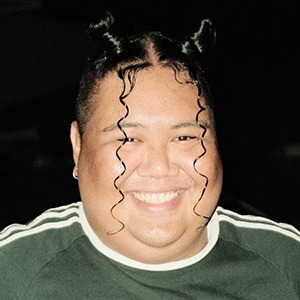How to deal with racism on dating apps
No bigots, no racists, no losers
Being a brown queer person can sometimes be very exhausting. To be clear, this isn’t a fatigue in celebrating and uplifting those intersections, but a tiredness in how I’m treated in some queer spaces – specifically dating apps. Many of my interactions on Grindr and Tinder centre my race and my culture in ways I’m not comfortable with, and it often leaves a bad taste in my mouth. Sometimes, it feels like I’m unworthy of an interaction when I don’t fulfil the cultural stereotypes held against me. Will it ever end?
WHAT RACISM CAN LOOK LIKE ON THE APPS
Sexual and relational racism can manifest in many different ways online. Gone are the days of racial violence and discrimination being the only conduits of racism.
Here are some examples:
Overt racism
- Culturally exclusive language: This can appear in bios like the notorious ‘No fats, no fems, no Asians’ tagline.
- Racial/ethnic slurs: I have no interest in listing them, but they are sadly used often on dating apps. I guess it’s easier for racists to type them out, especially when they’re hiding behind a screen.
- Stereotypes: This includes holding you against certain standards set by inaccurate and offensive sociocultural beliefs or reducing you to preconceived notions of your culture. For example, many make the assumption early on in conversations that I’m sexually submissive, subservient and docile because my cultural background is Asian. This is untrue.
Covert racism
- Racial preferences: This is when people purposely and exclusively seek people of a certain race or culture. Having preferences and types is one thing; racially siloing the people they engage with is another. This can appear on apps in bios like ‘Seeking [this race] only.’
- Conscious/unconscious bias: This is where media and social/personal experiences solidify misinformed cultural biases, and a person is unable to look outside of them. This can appear in conversation where rejection is based on race.
- Backhanded compliments: Things like ‘You’re cute for a [race]’, or ‘You’re not like other [race]’.
SAFELY CALLING IN RACISM ON DATING APPS
Take stock of your energy. Do you have the capacity to educate someone else on their racist behaviour? This isn’t your responsibility, but if this feels simply like a misinformed misstep, or if it doesn’t feel like a dangerous interaction, then feel free to call that person in. Has that person made an assumption about your cultural background based on stereotypes? Have they used a racial slur? Pinpoint the part that makes you uncomfortable, and explain why it’s hurtful and offensive. Racial and cultural backgrounds aren’t monolithic, and it doesn’t feel nice being painted and perpetuated a certain way.
There are also opportunities to take these conversations offline. Not just with prospective dates and hookups on apps, but with your queer peers in person. Do they have preconceived ideas about a person based on their cultural background? Do they silo their preferences?
If yes to the above, and there’s no remit for change on their end, then I hope you’re able to find better connections and relationships elsewhere, where your culture is celebrated and loved.
GETTING COMFORTABLE WITH THE BLOCK BUTTON
Sadly, some people – particularly those with deep-rooted racist ideologies and beliefs – won’t ever change. You may not have the energy and desire to continue the interaction. I encourage you to exercise your right to disengage with and block these people, particularly if you feel you’re in danger. Again, it isn’t your responsibility to educate others on what is and isn’t racially inappropriate, so block away.
WHAT ELSE CAN I DO?
It could also be helpful to do some self reflection of your own. What racial stereotypes and beliefs am I holding against other queer black, indigenous and people of colour? What can I do to be more of an equal opportunity lover or open opportunity dater? Interrogate these questions yourself and go from there.
You could also fight fire with fire and purposely place anti-racist wording in your bios and taglines. Using open and welcoming language can also connect you to other like-minded app users!
A lower level suggestion, but equally as important, is consuming queer content that features an array of cultures – like Heartstopper, It’s A Sin, Heartbreak High, Moonlight, The Half of It, the list goes on. Seeing queerness in different shades can help break down stereotypes and cultural biases.
WHERE TO FIND CULTURAL SUPPORT
Reach out to fellow BIPOC queers who may have also experienced sexual and relational racism. It is a sad but comforting truth that you are not alone in this experience, and as with other social issues, community is always there to help.
- QLife (1800 184 527, web chat)
- For queer First Nations folks, 13YARN (139 276)
- Embrace Multicultural Mental Health (in-language mental health support)
If a racist incident has impacted your mental health and wellbeing, I encourage you to seek mental health help.
Mark Mariano (he/they) is a Filipino writer, model and podcast producer from Doonside in Western Sydney on Dharug land. Proudly queer, his work has been featured on Buzzfeed, SBS, ABC, and Queerstories. In 2023, he contributed to ACON’s editorial anthology ‘Stories Out West’, and starred in their ‘With Love’ campaign for Sydney WorldPride as ‘sexy sickly bear’. Mark loves thrifting and crying on public transport in hopes of getting scouted for a Netflix series.
